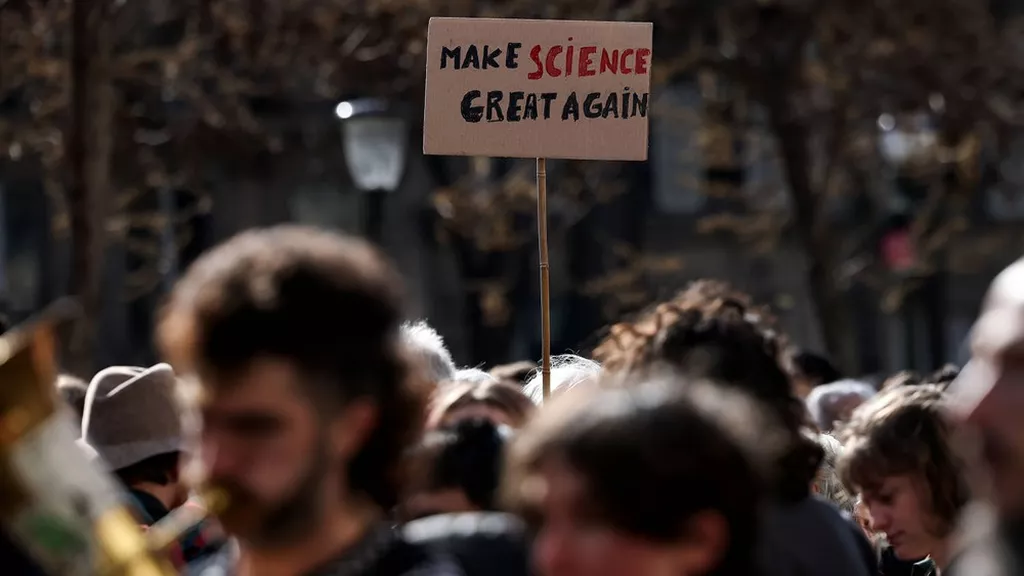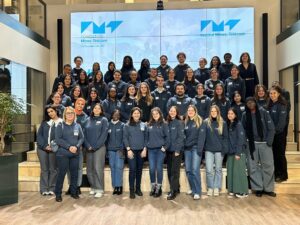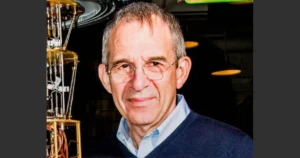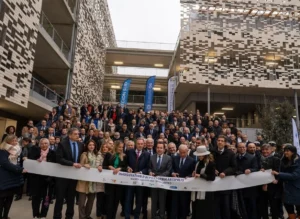“If Europe fails to defend science, it will fail to defend its future”.
As the United States targets certain scientific disciplines, 14 Deans of Technological Universities in engineering and management, together with the Executive President of IMT, speak out in support of their American peers and call for the defense of academic freedom.
The facts are stark and unprecedented. The current U.S. administration has launched a direct assault on specific scientific themes: banning terms like “climate” and “women” in research, deleting critical databases, and halting international scientific collaborations.
The removal of Kate Calvin, co-chair of IPCC Working Group I, during the panel’s latest session is a chilling example. The world’s leading scientific power is building a system of censorship. The implications are alarming.
In response, we — Deans of engineering and management Technological Universities — speak out in solidarity with our American colleagues. Silence would be a failure of responsibility.
Science is a public good. To remain silent is to retreat
This is not just a scientific dispute. It’s a threat to the foundational freedom to produce and share knowledge. It’s a challenge to the very bedrock of our modern societies.
Science is not a luxury. It’s our vital link to reality and a key to addressing the defining challenges of our era: climate change, public health, technology, and sovereignty. Suppressing it means weakening our ability to respond, stifling innovation, and limiting future solutions.
We call on the scientific community, academics, students, and all European citizens to recognize the gravity of this threat. Each retreat today is a setback for tomorrow. Europe cannot afford to stand by. It must act. It has a historic responsibility to lead with a firm, united, and strategic response.
Europe must be a refuge for scientific freedom
At IMT and its Technological Universities, our deep commitment to strategic fields — from artificial intelligence and cybersecurity to energy transition and digital health — embodies our dedication to open, responsible science.
We train engineers and decision-makers equipped to address societal challenges and develop sustainable solutions. We invest in bold, industry-connected research that strengthens European strategic capabilities.
We affirm that Europe can — and must — be a haven for scientific freedom. We must welcome at-risk researchers, build academic bridges, and reinforce collaborations. We must create ecosystems that nurture and fund the talents others seek to silence. Scientific excellence is a pillar of sovereignty.
Today’s energy, digital, and ecological transformations cannot be addressed without substantial, sustained investment in science. This is not optional — it’s a necessity. Every cut to research, every delay in training future engineers, every compromise on academic freedom endangers our future.
In a world where cybersecurity, AI, energy, and digital sovereignty form new frontlines, investing in science means investing in the security and independence of our societies.
To defend science is to defend our future
This is not abstract. Our Technological Universities are actively engaged in innovation, research, and entrepreneurship alongside industry and public institutions. We know what it takes to keep Europe competitive — and the cost of inaction.
Europe must invest in education, support researchers, protect academic freedom, and foster responsible innovation — starting now. Others are moving fast. So must we.
We speak today with urgency and resolve: if Europe fails to defend science, it will fail to defend its future.
We therefore call on public authorities, European institutions, businesses, and citizens to stand up. To defend scientific freedom with the same commitment we bring to our economic and security interests.
Science is a battle of the present. It’s time to act.
Co-signatories
- Anthony Briant (École Nationale des Ponts et Chaussées),
- Herbert Casteran (Institut Mines-Télécom Business School),
- Thierry Coulhon (IPParis),
- Elisabeth Crépón (ENSTA),
- Arnaud Delamézière (INSIC),
- François Dellacherie (Télécom SudParis),
- Cécile Dubarry (Executive President, IMT),
- Jacques Fayolle (Mines Saint-Étienne),
- David Gesbert (EURECOM),
- Christophe Lerouge (IMT Atlantique),
- Lionel Luquin (IMT Mines Albi),
- Patrick Olivier (Télécom Paris),
- Céline Fasulo (IMT Nord Europe),
- Assia Tria (IMT Mines Alès)




